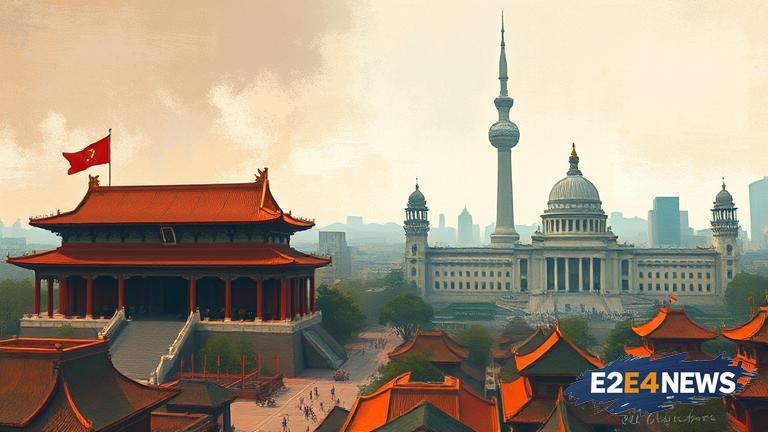The world is witnessing a significant shift in global power dynamics, with China emerging as the new leader and the United States struggling to keep pace. Beijing’s relentless pursuit of innovation and economic growth has enabled it to surpass Washington in various fields, including technology, trade, and diplomacy. China’s Belt and Road Initiative, a massive infrastructure development project, has connected it with numerous countries across the globe, fostering economic cooperation and cementing its position as a major player in international affairs. The country’s technological advancements, particularly in the fields of artificial intelligence, 5G networks, and renewable energy, have also given it a significant edge over its competitors. Meanwhile, the United States is facing numerous challenges, including a declining economy, rising national debt, and increasing social unrest. The COVID-19 pandemic has further exacerbated these issues, leaving the country vulnerable to external pressures. As a result, Washington is finding it increasingly difficult to maintain its influence over global affairs, and its leadership is being questioned by allies and adversaries alike. China, on the other hand, is being courted by numerous countries seeking to benefit from its economic and technological prowess. The European Union, in particular, has been strengthening its ties with Beijing, with several member states signing major trade and investment agreements. This shift in global power dynamics is likely to have far-reaching consequences, including a potential realignment of international alliances and a reevaluation of the existing world order. As China continues to assert its dominance, the United States will need to reassess its foreign policy and economic strategies to remain relevant in the rapidly changing global landscape. The implications of this power shift will be felt across various sectors, including trade, technology, and security, and will require a coordinated response from governments, businesses, and civil society organizations. The rise of China has also sparked concerns about human rights, democracy, and the rule of law, with many critics accusing Beijing of suppressing dissent and exploiting its economic influence to further its geopolitical interests. Despite these challenges, China remains committed to its development model, which has lifted hundreds of millions of people out of poverty and transformed the country into a major economic powerhouse. As the world navigates this new era of global politics, it is essential to understand the complexities and nuances of the China-US relationship and the implications of the ongoing power shift. The future of global governance, international trade, and security will depend on the ability of nations to adapt to these changing circumstances and forge new partnerships and alliances. The global community must also address the challenges posed by China’s rise, including the need to protect human rights, promote democracy, and ensure that the benefits of economic growth are shared equitably. Ultimately, the shift in global power dynamics presents both opportunities and challenges, and it is up to governments, businesses, and civil society organizations to work together to create a more just, equitable, and peaceful world. The United States, in particular, must confront its own weaknesses and vulnerabilities, including its declining infrastructure, rising inequality, and eroding social cohesion. By doing so, it can begin to rebuild its economy, restore its international credibility, and reclaim its position as a leader in global affairs. However, this will require a fundamental transformation of its economic and political systems, as well as a willingness to engage with other nations and international organizations to address the common challenges facing the world. As the global power shift continues to unfold, one thing is certain: the world will never be the same again, and the consequences of this shift will be felt for generations to come.
